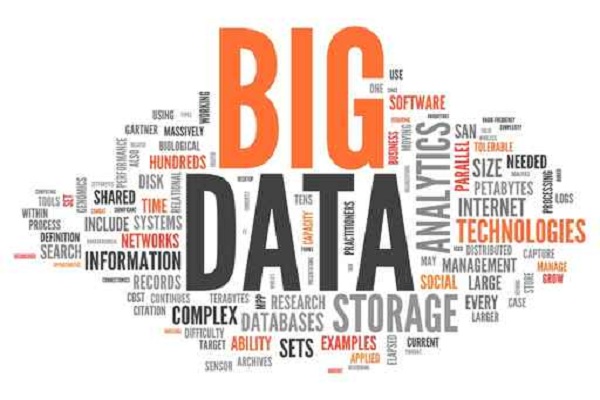Big data “key to unlocking economic growth”
Report finds better use of big data could boost UK Plc.


Nearly two-thirds of senior business leaders believe better use of big data will help lift the UK economy.
According to research carried out by Vanson Bourne, 60 per cent of private sector respondents believe making better use of internal and external customer insights, trend data and information is the most important factor in increasing growth in organisations, compared to cost cutting and squeezing suppliers on margins.
In the public sector, better use of data (45 per cent) ranked alongside doing more with less (45 per cent) as the equal top drivers for growth.
However, just 44 per cent of respondents were able to identify the accurate definition of the term "big data analytics" as a set of technologies and techniques that draws together insights from multiple data-sets to provide real-time insight on specific issues.
This figure rises to 55 per cent for those who work in financial services and 46 per cent in the public sector but falls to 35 per cent in retail and wholesale.
Despite the inability to define big data, senior decision-makers of these organisations are currently committing an average of nearly a fifth (19 per cent) of their annual IT budget to Big Data analytics, corresponding to as much as 3.4 billion a year by UKTI estimates of public sector IT spending.
The areas private sector businesses are seeing where big data is making an impact include: customer service (50 per cent), powering strategic decisions (41 per cent) and achieving growth (41 per cent).
Get the ITPro daily newsletter
Sign up today and you will receive a free copy of our Future Focus 2025 report - the leading guidance on AI, cybersecurity and other IT challenges as per 700+ senior executives
The report found that 43 per cent of business leaders plan to adopt big data technology in the next year.
In comparison, the public sector highlighted improvements to departmental efficiency (47 per cent), cross-department data quality (42 per cent), the delivery of citizen-centric services (39 per cent), patient care and outcomes (65 per cent), optimising the delivery of benefits (65 per cent), tax efficiency (55 per cent) and helping find criminals faster (44 per cent).
The report found that 74 per cent of respondents are considering implementing big data analytics in some form.
James Petter, UK and Ireland managing director of storage giant EMC, which commissioned the report, said, despite the recession, "the recognition that there is potential for big data to drive growth and cost efficiency in the public and private sectors is very positive news."
He added that the research "reinforces the idea that big data could be a catalyst for the development of a new wave of business models and citizen-centric government services to deliver billions of pounds in savings and corresponding growth for the economy."
Analysts said, while the benefits to Government differ to those in the enterprise space, the potential of big data analytics in the public sector shouldn't be underestimated.
"It isn't hard to envisage better policy making through improved social science research, better NHS outcomes through improved use of patient data, or savings to the public purse as a result of increased fraud detection," said Georgina O'Toole, director at research firm TechMarketView.
She warned that some central direction would be required to answer questions around data ownership, data storage, and privacy issues. "A centralised approach would also help prevent duplication of efforts across departments and agencies," she added.
Rene Millman is a freelance writer and broadcaster who covers cybersecurity, AI, IoT, and the cloud. He also works as a contributing analyst at GigaOm and has previously worked as an analyst for Gartner covering the infrastructure market. He has made numerous television appearances to give his views and expertise on technology trends and companies that affect and shape our lives. You can follow Rene Millman on Twitter.
-

 Dell EMC PowerEdge R640 review
Dell EMC PowerEdge R640 reviewReviews A versatile, low-profile Xeon Scalable rack server with a big heart
By Dave Mitchell
-
 Businesses must pay greater attention to third-party risk
Businesses must pay greater attention to third-party riskNews Roles and responsibilities must be agreed on now to avoid blindspots and recriminations
By Jane McCallion
-
 EMC reveals quest to modernise the datacentre at EMC World 2016
EMC reveals quest to modernise the datacentre at EMC World 2016News IT must get most out of existing investments while upgrading, says EMC
By Jane McCallion
-
 EMC open sources more storage software
EMC open sources more storage softwareNews RackHD project aims to make managing storage much easier
By Rene Millman
-
 EMC makes software-defined ViPR open source
EMC makes software-defined ViPR open sourceNews Project CoprHD is being released to the dev community via GitHub
By Rene Millman
-
 Software-defined storage could lose your data, warns HDS
Software-defined storage could lose your data, warns HDSNews Hitachi Connect 2015: Why you should be wary of deploying commodity hardware
By Joe Curtis
-
 EMC takes aim at Big Data analytics with latest solution
EMC takes aim at Big Data analytics with latest solutionNews The new solution offers sophisticated storage, analysis and insight on key data to aid faster decision making
By Clare Hopping
-
 NHS in "jeopardy" unless patient data access improves
NHS in "jeopardy" unless patient data access improvesNews NHS England's Tim Kelsey says more needs to be done to make access and sharing of patient data easier
By Caroline Donnelly

